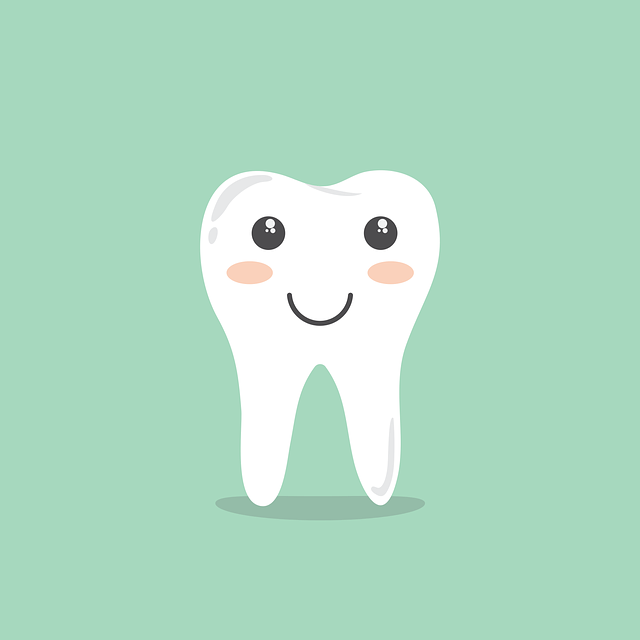Do Retainers Cause Gum Recession? Dental Health Insights
Welcome to Dental Health Insights! In this article, we will delve into a commonly asked question: do retainers cause gum recession? As dental health enthusiasts, we understand the importance of addressing concerns that affect our oral well-being. With a confident and knowledgeable approach, we aim to provide you with neutral and clear insights on this matter. So, let’s embark on this journey together, exploring the world of retainers and their potential impact on gum health. Get ready to uncover the truth behind this intriguing topic, as we navigate through the vast realm of dental health.
1. Understanding the Relationship between Retainers and Gum Recession: Unveiling Dental Health Insights
Retainers are an essential part of maintaining a beautiful smile after orthodontic treatment. However, it is crucial to understand their potential impact on gum health, specifically gum recession. Gum recession occurs when the gum tissue surrounding the teeth wears away or pulls back, exposing the tooth root. While retainers play a vital role in keeping teeth aligned, improper usage or inadequate care can contribute to gum recession. Here, we unveil some valuable dental health insights to help you understand and navigate this relationship effectively.
Causes of Gum Recession:
- Aggressive brushing techniques: Brushing too hard or using a hard-bristled toothbrush can damage the delicate gum tissue, leading to recession.
- Poor oral hygiene: Inadequate brushing and flossing allow plaque buildup, which can irritate the gums and result in recession over time.
- Genetics: Some individuals may be more predisposed to gum recession due to their genetic makeup.
2. Debunking the Myth: Do Retainers Truly Cause Gum Recession?
Gum recession is a common concern among individuals who wear retainers, but let’s debunk the myth once and for all: retainers do not cause gum recession. Here’s why:
1. Proper fit: Retainers are custom-made to fit your teeth perfectly. When a retainer fits properly, it exerts gentle pressure on the teeth to keep them aligned. This pressure is evenly distributed and does not target the gums, preventing any potential harm.
2. Oral hygiene: Maintaining good oral hygiene is crucial for preventing gum recession. While wearing a retainer, it is important to continue practicing regular brushing and flossing to keep your gums healthy. This ensures that any bacteria or plaque buildup is removed, reducing the risk of gum issues.

3. Exploring the Scientific Evidence: The Impact of Retainers on Gum Health
Retainers are commonly used in orthodontic treatment to maintain the position of teeth after braces are removed. While they are primarily known for their role in maintaining tooth alignment, there is growing evidence suggesting that retainers can also have a positive impact on gum health.
Here are some key scientific findings that highlight the impact of retainers on gum health:
- Reduced plaque accumulation: Studies have shown that properly fitted retainers can help minimize plaque buildup along the gumline. Plaque is a sticky film of bacteria that can lead to gum inflammation and periodontal disease.
- Improved periodontal health: Retainers that are worn consistently and correctly have been found to contribute to better periodontal health. This is because they help to maintain the proper alignment of teeth, which allows for better gum health and reduces the risk of gum diseases.
- Prevention of gum recession: Retainers play a crucial role in preventing gum recession, a condition where the gum tissue pulls away from the teeth, exposing the tooth root. By keeping teeth in their proper position, retainers help to support the gum tissue and prevent recession.
These scientific findings highlight the important role that retainers can play in promoting gum health. It is important to follow your orthodontist’s instructions regarding retainer wear and maintenance to ensure optimal outcomes for both tooth alignment and gum health.

4. Shedding Light on the Factors Behind Gum Recession and Retainers
Gum recession is a common dental condition that occurs when the gum tissue surrounding the teeth wears away, exposing the tooth roots. There are several factors that can contribute to gum recession, and understanding these factors is crucial in preventing and treating this condition.
One of the main causes of gum recession is poor oral hygiene. Inadequate brushing and flossing can lead to the buildup of plaque and tartar, which can irritate the gums and cause them to recede. Additionally, aggressive brushing or using a toothbrush with hard bristles can also contribute to gum recession. It is essential to brush gently and use a soft-bristled toothbrush to avoid damaging the gums.
Factors that can cause gum recession include:
- Periodontal disease: This is a bacterial infection that affects the gums and can lead to gum recession if left untreated.
- Genetics: Some people are more prone to gum recession due to their genetic makeup.
- Malocclusion: Having crooked or misaligned teeth can put excessive pressure on the gums, leading to recession.
- Bruxism: Teeth grinding and clenching can cause gum recession over time.
To prevent gum recession, it is crucial to maintain good oral hygiene practices, including regular brushing and flossing. Visiting a dentist regularly for check-ups and professional cleanings can also help identify early signs of gum recession and prevent its progression. If gum recession has already occurred, wearing a retainer can be beneficial. Retainers help to stabilize the teeth and prevent further gum recession by providing support to the surrounding tissues.

5. Dispelling Concerns: How to Maintain Healthy Gums While Wearing Retainers
Wearing retainers after orthodontic treatment is crucial for maintaining the alignment of your teeth. However, some people may have concerns about their gum health while wearing retainers. We are here to dispel those concerns and provide you with valuable tips on how to maintain healthy gums while wearing retainers.
1. Maintain a consistent oral hygiene routine: Brush your teeth at least twice a day using a soft-bristled toothbrush. Be gentle when brushing around your gums to avoid irritation. Don’t forget to floss daily to remove plaque and bacteria from between your teeth. Consider using an antibacterial mouthwash to further promote gum health.
2. Clean your retainers properly: Remove your retainers before brushing your teeth and clean them separately. Use a gentle toothbrush and non-abrasive toothpaste to brush your retainers gently. Rinse them thoroughly with water before placing them back in your mouth. Additionally, soak your retainers in a denture cleaner or a mixture of water and baking soda once a week to remove any built-up bacteria or residue.

6. Expert Tips for Safeguarding Your Gum Health during Retainer Use
When it comes to maintaining healthy gums while using a retainer, there are a few expert tips that can make a world of difference. Follow these recommendations to ensure your gum health remains in top shape:
- Brush and floss diligently: Proper oral hygiene is crucial, especially when wearing a retainer. Brush your teeth at least twice a day using a soft-bristled toothbrush and fluoride toothpaste. Don’t forget to floss daily to remove any plaque or food particles that may get trapped.
- Clean your retainer regularly: Just like your teeth, your retainer needs to be cleaned to prevent bacterial buildup. Rinse it with water after each use and clean it thoroughly with a mild retainer cleaner or non-alcoholic mouthwash. Avoid using hot water or harsh chemicals that may damage the retainer.
- Avoid sugary and sticky foods: While wearing your retainer, it’s best to stay away from sugary and sticky foods. These can get stuck in the retainer and increase the risk of plaque formation. Opt for a balanced diet rich in fruits, vegetables, and lean proteins instead.
Remember, maintaining healthy gums is essential for your overall oral health. By following these expert tips, you can safeguard your gum health during retainer use and enjoy a beautiful smile for years to come.
7. The Balanced Perspective: Weighing the Pros and Cons of Retainers on Gum Tissue
Pros of Retainers on Gum Tissue:
- Retention of teeth alignment: One of the primary benefits of using retainers on gum tissue is that they help maintain the alignment achieved through orthodontic treatment. By keeping the teeth in their correct positions, retainers prevent them from shifting back to their original places, ensuring long-lasting results.
- Protection against gum recession: Retainers can provide a protective barrier for the gums, reducing the risk of gum recession. They can help distribute the forces exerted during chewing evenly across the gum tissue, preventing excessive pressure on certain areas that could lead to recession.
- Maintaining oral hygiene: Retainers that fit properly on gum tissue can assist in maintaining good oral hygiene. They prevent food particles from getting trapped between teeth, reducing the risk of plaque buildup and potential gum disease.
Cons of Retainers on Gum Tissue:
- Potential gum irritation: In some cases, wearing retainers on gum tissue can cause irritation and discomfort. This is more likely to occur if the retainer is ill-fitting or if the patient has a sensitivity to the material used. It is important to ensure that the retainer is properly adjusted and that any signs of irritation are promptly addressed.
- Difficulty with speech: Initially, wearing a retainer on gum tissue may affect speech clarity for some individuals. This is usually temporary and improves as the wearer becomes accustomed to the retainer. Regular practice and speaking exercises can help overcome any speech difficulties.
- Maintenance and care: Retainers require regular cleaning and proper maintenance to ensure their longevity and effectiveness. Failure to clean the retainer regularly can lead to bacterial growth, bad breath, and potential oral health issues.
Frequently Asked Questions
Q: Do retainers cause gum recession?
A: Retainers themselves do not directly cause gum recession. However, improper use or poor oral hygiene while wearing retainers can contribute to gum recession over time.
Q: How can retainers affect gum health?
A: Retainers, if not properly cleaned or fitted, can harbor bacteria and plaque, leading to gum inflammation and potential gum recession. It is crucial to maintain good oral hygiene and follow proper retainer care instructions to minimize any adverse effects on gum health.
Q: Can wearing retainers for extended periods lead to gum recession?
A: Prolonged wearing of retainers alone is unlikely to cause gum recession. Nevertheless, if retainers are ill-fitting or not regularly cleaned, plaque buildup and subsequent gum inflammation can occur, potentially leading to gum recession if left unaddressed.
Q: What are some signs of gum recession?
A: Signs of gum recession may include tooth sensitivity, exposed tooth roots, longer-looking teeth, or notching at the gumline. If you notice any of these symptoms, it is advisable to consult a dental professional promptly to evaluate the condition of your gums.
Q: How can one prevent gum recession while wearing retainers?
A: To prevent gum recession while wearing retainers, it is essential to maintain good oral hygiene practices. This includes brushing twice a day, flossing daily, and using antibacterial mouthwash. Additionally, following the instructions provided by your orthodontist regarding retainer care, cleaning, and wearing duration is crucial for gum health.
Q: Can wearing a retainer at night only contribute to gum recession?
A: Wearing a retainer at night only, as prescribed by your orthodontist, is generally safe and should not directly contribute to gum recession. However, it is still important to ensure proper retainer hygiene and follow good oral care practices to maintain healthy gums.
Q: Are there any other factors that can contribute to gum recession?
A: Yes, several factors can contribute to gum recession, including poor oral hygiene, gum disease, aggressive brushing, hormonal changes, genetic predisposition, tobacco use, teeth grinding, and misaligned teeth. It is important to address any underlying issues and maintain good oral health habits to prevent or minimize gum recession.
Q: What should I do if I suspect gum recession while wearing retainers?
A: If you suspect gum recession while wearing retainers, it is advisable to schedule an appointment with your dentist or orthodontist. They can assess the condition of your gums, provide appropriate treatment options, and guide you on the necessary steps to prevent further recession.
Q: Can gum recession caused by retainers be reversed?
A: Gum recession caused by retainers can be prevented from worsening by improving oral hygiene practices and addressing any underlying issues. However, reversing gum recession may require professional intervention, such as deep cleanings, gum grafting, or other periodontal treatments. Early detection and prompt action are key to successful management.
In Retrospect
In conclusion, it is important to address the common concern of whether retainers cause gum recession. Through our dental health insights, we can confidently state that retainers do not directly cause gum recession. However, improper care and hygiene practices can contribute to this issue. Here are the key takeaways to keep in mind:
1. Retainers are essential for maintaining the alignment of your teeth after orthodontic treatment.
2. Gum recession is primarily caused by factors such as genetics, poor oral hygiene, aggressive brushing, or gum disease.
3. It is crucial to follow your dentist’s instructions on how to properly clean and care for your retainer.
4. Maintain a diligent oral hygiene routine, including brushing twice a day, flossing, and regular dental check-ups, to prevent gum recession.
5. If you experience any discomfort or notice signs of gum recession, such as sensitivity or visible gum shrinkage, consult your dentist promptly.
Remember, taking care of your oral health is a holistic approach that includes proper retainer care and overall oral hygiene. By staying informed and following professional advice, you can maintain a healthy smile and prevent gum recession.





